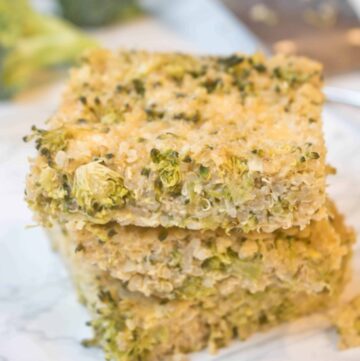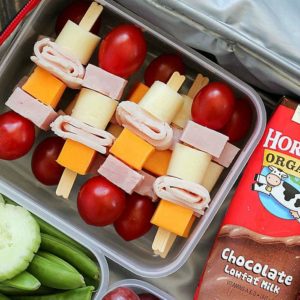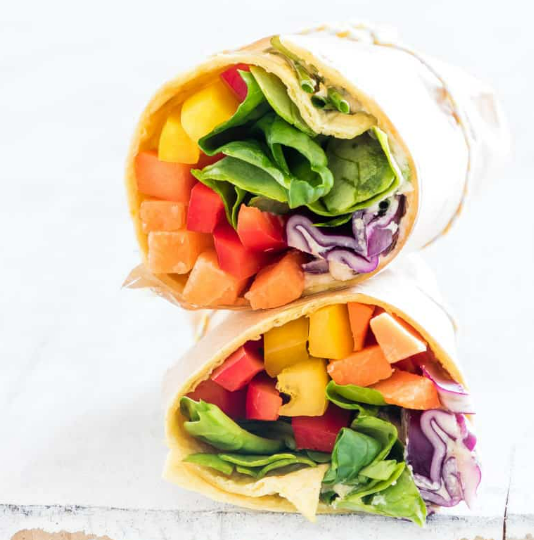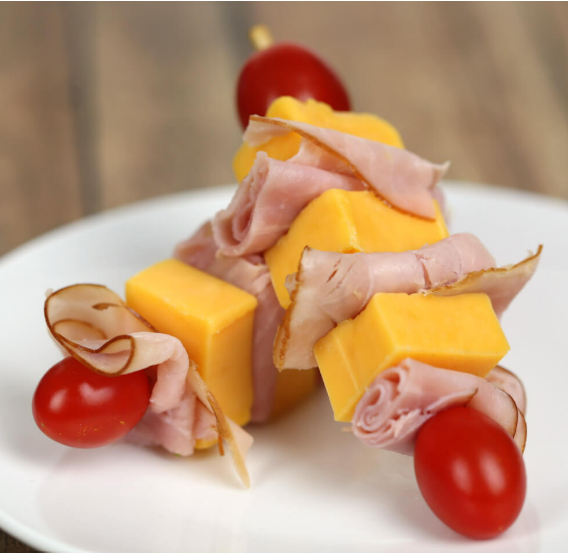Healthy school lunches are essential for keeping kids energized and focused throughout the day. With so many school lunch ideas and healthy lunch ideas, you can create meals that are both nutritious and appealing to children. From easy lunch ideas to packed lunch ideas, there are endless options to ensure your kids enjoy their meals while getting the nutrients they need.
When it comes to preparing healthy school lunches, variety and nutrition are key.
Starting with some simple school lunch ideas, consider incorporating whole grains, lean proteins, and plenty of fruits and vegetables.
Healthy lunches can include fun wraps with turkey and avocado, or a colorful salad with mixed greens, cherry tomatoes, and a light vinaigrette.
For a sweet touch, add a side of fresh fruit or a homemade yogurt parfait with granola.

For those busy mornings, having a repertoire of easy lunch ideas is a lifesaver.
Easy healthy lunches can be prepped ahead of time, like a batch of chicken and veggie wraps or a quinoa salad with black beans and corn.
These lunch meal prep ideas are not only quick to assemble but also ensure your kids have a balanced meal.
If your child has a preference for finger foods, consider creating a bento box with assorted items like cheese cubes, whole grain crackers, carrot sticks, and hummus.
One of the challenges many parents face is finding quick and healthy lunch ideas that are also low in calories but high in nutrition.
Low calorie lunch ideas such as a vegetable soup paired with a small whole wheat roll or a Greek salad with a side of fruit can be both satisfying and healthy.
For those looking to incorporate more plant-based options, easy vegetarian lunches for work like a chickpea salad sandwich or a lentil and vegetable stir-fry can double as great lunch options for kids.
Another great tip for healthy school lunches is to get your kids involved in the process.
Allowing them to choose their favorite fruits, vegetables, and proteins can make them more excited about their meals.
Fun lunch ideas like creating animal shapes out of sandwiches or adding a colorful assortment of sliced bell peppers can make lunchtime more enjoyable.
Additionally, simple healthy lunches like pasta salad with lots of veggies or a rice bowl with grilled chicken and steamed broccoli can be both delicious and easy to prepare.
For those days when you need easy and healthy lunch ideas, consider recipes that can be made in large batches and stored in the refrigerator.
Meal prep lunch ideas such as a big pot of chili, a tray of baked chicken tenders, or a large container of mixed fruit salad can save time and ensure you have healthy options ready to go.
If your child enjoys sandwiches, try to keep it interesting by rotating between different fillings like tuna salad, roasted vegetables, or almond butter and banana.
Ultimately, the key to healthy school lunches is to balance nutrition with taste.
By incorporating a variety of foods and keeping the meals colorful and fun, you can ensure that your kids look forward to lunchtime.
With these good lunch ideas and lunch suggestions, you can feel confident that you’re providing your children with the best fuel for their busy school days.
Cheap Easy Healthy School Lunches For Kids
“ Affiliate links are provided for your convenience, please read my disclosure for more information.”
21. Copycat Arby’s Chicken Salad

20. Taco Stuffed Mini Peppers

19. Pepperoni & Cheese Pizza Muffins

18. Grilled Cheese Roll Ups

17. Ham & Cheese Pinwheels

16. Strawberry Oatmeal Bars

15. Broccoli Cheddar Quinoa Bars

14. Cheese & Turkey Kebabs

13. Vegan Potato Cakes With Carrot & Rice

12. Ham & Cheese Pockets

11. Rainbow Hummus Veggie Wrap

10. Air Fryer Turkey Meatballs

9. Grilled Peanut Butter & Jelly

8. Ham & Cheese Appetizer Skewers

7. Avocado Tuna Melt

6. Cheese Quesadilla

5. Chicken & Waffle Sliders

4. Cheesy Pepperoni Pizza Sticks

3. Chicken Ranch Wraps

2. Taco Pockets

1. Chicken Meatballs For Babies

FAQs
Q. Why is involving children in meal planning important?
Involving children in meal planning is important because it instills healthy eating habits, encourages independence and responsibility, and enhances their nutritional knowledge. It also fosters family bonding and expands their food repertoire.
Q. At what age can children start participating in meal planning?
Children can start participating in meal planning as early as preschool age, around 3 to 4 years old. However, the level of involvement and tasks assigned should be age-appropriate.
Q. How can I involve children in meal planning?
You can involve children in meal planning by allowing them to choose recipes, assisting with grocery shopping, helping with meal preparation and cooking, and encouraging them to provide input and ideas for meals.
Q. What are some easy recipes that children can help with?
Some easy recipes that children can help with include making sandwiches, salads, pasta dishes, fruit skewers, smoothies, and simple baked goods like cookies or muffins. These recipes usually involve simple steps and allow children to participate actively.
Q. How can I make meal planning enjoyable for children?
You can make meal planning enjoyable for children by creating a positive and fun environment in the kitchen, involving them in decision-making, allowing them to be creative with ingredients, and incorporating games or challenges into the process.
Q. Will involving children in meal planning take more time?
Initially, involving children in meal planning may take a bit more time as they learn and develop their skills. However, over time, their involvement can actually save time as they become more efficient and independent in the kitchen.
Q. How can involving children in meal planning benefit their health?
Involving children in meal planning can benefit their health by teaching them about nutrition, encouraging them to make healthier food choices, and fostering a positive relationship with food. It can also reduce the likelihood of obesity and other health issues.
Q. Can involving children in meal planning reduce food waste?
Yes, involving children in meal planning can help reduce food waste. By including them in the process, they become more aware of the ingredients needed, portion sizes, and the importance of using leftovers creatively, which ultimately reduces food waste.
Q. What if my child is a picky eater? Can meal planning still be beneficial?
Even if your child is a picky eater, meal planning can still be beneficial. By involving them in the process, they may become more open to trying new foods and flavors. It allows them to have a sense of control and familiarity with the meals, which can gradually expand their food preferences.
Q. How can involving children in meal planning improve their independence?
Involving children in meal planning improves their independence by giving them responsibilities and allowing them to make decisions about their food. They learn important life skills such as planning, organizing, and problem-solving, which contribute to their overall independence and self-confidence.
Now comes the important question… Which healthy school lunches do you like the most? Please let me know in the comments.
Few more kid’s recipes !!!
Want to save this for later? Post these Healthy School Lunches to “Kids Friendly Recipes” OR “Lunch Ideas” Pinterest Board!







